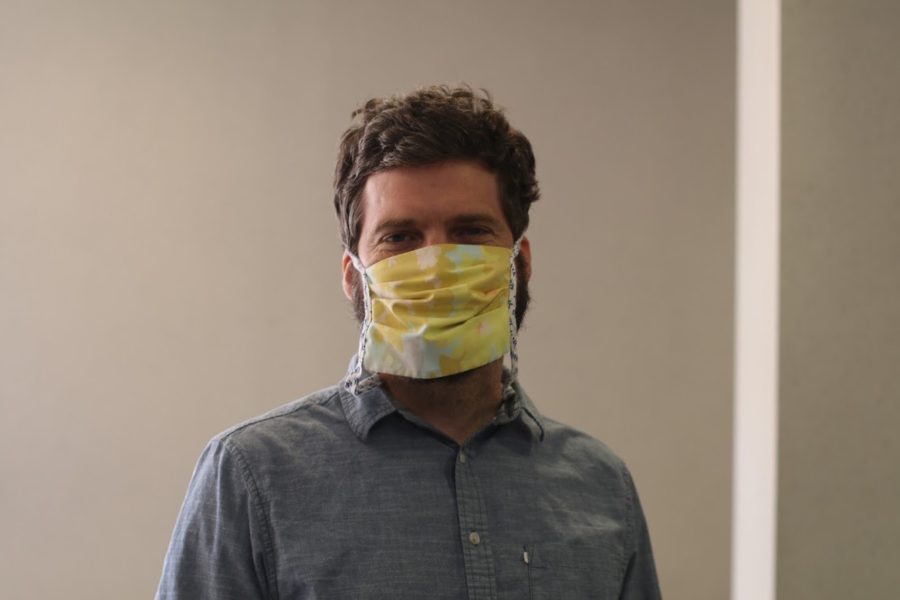There have been a lot of stories about how students have struggled because of remote learning. But students are not the only ones struggling with this semester. Many faculty and staff members are struggling throughout this new, stressful semester.
Professors went from teaching in front of a group of students to in front of a computer screen overnight. They weren’t given enough time to prepare for this condensed semester, either. Many professors never even taught a course online. They had to learn how to use online platforms like Zoom and Microsoft Teams on the fly. To get a better understanding on how they are coping throughout this hectic time, I interviewed three Southern Miss professors about their feelings this semester.
Dr. Karen Kozlowski is an assistant professor of Sociology at the University of Southern Mississippi. Kozlowski has taught at the University for five years. Although she has taught a wide variety of students with a wide variety of backgrounds, nothing prepared her for a totally online semester.
“It has been a struggle as a mother to prepare for the Fall, while also being a full time or part-time parent,” said Kozlowski.
Since the fall semester began, she has spent eighty hours preparing for her Introduction to Sociology class. And that is only one class that she teaches this semester. She, like many professors, also misses talking with her students in person.
“I definitely miss the student interactions and seeing students in the hallway,” said Kozlowski.
Kozlowski copes with the stress by over-preparing and planning for the worst-case scenario. This strategy is used by other professors as well, because there is still a possibility that campus will close again due to the COVID-19 pandemic.
But even the best prepared professors will not always keep their students’ attention. Dr. Matthew Casey, an associate professor and Director of the Humanities department, explained that professors get a different engagement from students on the computer screen than in person. The reason why most professors teach is that they like the interaction with students in the classroom and can control how students engage. In a virtual class, however, professors might not get that same interaction from students, as they are no longer in control of the situation.
“The human side of teaching has been reduced,” said Casey.
Casey had experience teaching an online course before this semester, so he had a vague idea of what he was getting into. Still, he constantly reminds himself that this class structure is only temporary.
Casey understands the cumulative stress that students, faculty and staff is under due to their personal, academic and working lives. Overall, Casey wants people to remember everyone is struggling right now, so just take things day by day.
“We will be together once again,” said Casey.
Dr. Michelle McLeese is another assistant teaching professor of Sociology. McLeese, like Casey, has had some experience teaching classes online. Still, she said it was disorienting for her to teach every class online, as well as go to virtual faculty meetings or hold virtual office hours.
“I feel like I spend too much time in my chair, looking at a computer screen,” said McLeese.
McLeese’s main coping strategy is to remain flexible. She understands that students are struggling with these changes, so she lets them turn in late assignments. She keeps communication open with all of her classes, and speaks with a group of students once a week about how they’re handling this semester. McLeese hopes to soon convert this into a virtual club to help students struggling with isolation as a result of COVID-19.
She also did a panel with the Center for Faculty and Development to help other professors learn the ropes of online learning. McLeese said hearing both her students and colleagues talk about the same things was eye-opening.
“Hearing that other professors and [students] vent about the challenges of this semester, helps me realize that I am not the only one having a hard time,” said McLeese. Every professor has their own way of coping with this semester and their personal struggles should be considered.
McLeese also talked about the importance of spending time with loved ones this semester. She tries to spend time with her younger children on weekends, whether it’s by watching a movie or playing outside with them.
Southern Miss has tried to be considerate of faculty and student health. The professors that I interviewed appreciated that they have the option next semester to teach courses online or in person. They hope this means classes will be back to normal soon so they can interact with their students once again.


























